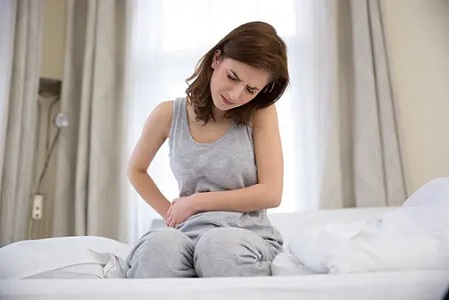
What is Menses?
Menses literally means “a month”. In women, it is a term given to the monthly discharge of blood from the vagina.
Menses is a part of the menstrual cycle in females. The cycle is governed by many hormonal changes which prepare the uterus for pregnancy.
It lasts for 28 days. On the 14th day of the cycle, one of the ovaries release an ovum.
If fertilized, this ovum gets implanted in the uterine bed and pregnancy begins. In the absence of fertilization, the ovum along with some uterine muscles is shed from the vagina. The flow consists of blood mixed with clots and is dark to bright red in color.
Since, the ultimate goal of every human being on earth is reproduction, a healthy menstrual cycle is important to maintain a healthy reproductive system.
Menarche and Menopause?
Menarche is the onset of menstruation in females. It usually begins at the age of 11 to 13 years in young girls. The time of onset may be variable.
Menopause is the other end of the line which marks the termination of the fertile period in females. Menstrual cycle officially terminates at the time of menopause in women.
The time of menopause is different for different women. The approximate age of menopause is 51 years, but it may occur at any time from 30 years of age up to 60 years in some females.
What is Normal Periods?
Just as all of us are unique as individuals, menstrual cycle also has a unique normal course in every female.
As a general rule, normal menses lasts for 3 -5 days and is accompanied by a total blood loss of 30 -40 ml.
It is important for every women to realize what her normal course of menses is, only then she will be able to pinpoint any irregularities or abnormalities in it.
Pre-Menstrual Syndrome (PMS)
It is a set of symptoms affecting many women, a few days before the monthly periods.
The common symptoms of PMS include, emotional upset, irritable mood, fluid retention in the body, breast tenderness and fatigue etc.
3 out of every 4 women have experienced some or the other symptom of Pre-menstrual syndrome at any point of time.
Common Causes of Menstrual Disturbance
- Miscarriage
- Fibroids
- Thyroid problems
- Hormonal imbalance
- Menopause
- Sudden change in weight
- Medications
- Large uterus
- Obstruction of menstrual blood flow due to anatomical abnormalities
- Endometriosis
When Bleeding is Less than Normal?
Possible reasons, if your periods are scanty or you have missed a period or two, vary according to your age.
For a fertile women, missing a period could be due to pregnancy, heavy exercises or severe malnutrition.
In perimenopausal (women nearing menopause) women, period irregularities are normal as the estrogen hormone supply is slowly reducing.
If there is no menses in elderly women for more than 12 months, it is considered to be menopause.
Other causes of less or no menstruation include, breast feeding, poly cystic ovarian disease, obesity, use of oral contraceptives etc.
Excessive Bleeding during Periods
If you are changing tampons or sanitary pads every hour or more frequently than you normally do, it is a sign that you may be bleeding abnormally.
Excessive bleeding during periods may occur due to uterine fibroids, ectopic pregnancy, miscarriage, birth control pills, cancer and blood clotting disorders
Bleeding in Between Periods
Though a rare occurrence, bleeding from the vagina in between the normal menstrual periods may occur due to an early menses. It may also occur due to some outgrowths from the uterus or the cervix.
Cancers, miscarriage, vaginal dryness and hormonal imbalance are the other factors.
Abnormal Cramping during Periods
It may occur normally as menses is accompanied by uterine contractions that expel the blood and clots out from the vagina. The pain in back and lower abdomen occurs to a varying degree in different women. This is called as dysmenorrhea.
For some, it may subside within a few hours, in others, the pain is accompanied by nausea, vomiting and diarrhea.
Gynecological consultation should be considered in case of severe problems.
Is it Possible to Naturally Manage Menstrual Problems?
Menstrual problems largely depend upon the food we eat, our level of physical activity and the nutritional status of our body.
It is therefore, very important to get wholesome nutrition for the body to support a healthy functioning of the menstrual cycle in females.
Efficacy of Natural Supplements in Managing Menstrual Problems
There are numerous nutritional supplements available in the market which help to naturally support menstrual health in females.
They do not offer any immediate or permanent cure for menstrual problems, but help to support general health in females.
Products that guarantee 100 % natural ingredients should only be used for consumption.
Can Dietary Supplements Cure Anemia?
Anemia is a big factor that affects the general health and wellbeing in females.
Anemic females almost always have some or the other problem associated with their reproductive system.
Therefore, it is very important to manage healthy hemoglobin levels in females so as to ensure lasting menstrual health.
Natural dietary supplements can help to support healthy hemoglobin levels in the body.
Not Satisfied?
Click Here to Consult Planet Ayurveda’s Team of Experienced MD-Ayurveda Doctors.
